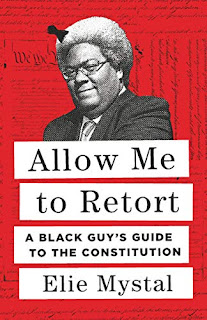from Allow Me to Retort: A Black Guy's Guide to the Constitution by Elie Mystal:
The legislation marked the last time white lawmakers would give a shit about Black people for nearly a hundred years. In 1877, Rutherford B. Hayes was installed as president after a disputed election where the validity of the Electoral College was called into question. A special commission decided the election in favor of Hayes, a Republican, with the help of Southern Democrats, but there was a catch. Hayes had to agree to remove federal troops from the South, which he did, thereby marking the effective end of Reconstruction.
By 1883, the Supreme Court overturned much of the 1875 Civil Rights Act, including all of the protections against the discrumination in public accommodations and transportation. The Supreme Court, in a case called the Civil Rights Cases, ruled that the Fourteenth Amendment could not prohibit “private” discrimination.
Without troops left in the South to protect Black people who were trying to exercise their rights, without states willing to write laws prohibiting discrimination in their own territories, and without a federal cause of action so that Black people could object to the discrimination they were facing, the Jim Crow era was off and running. State governments didn’t even have to pass laws formally discriminating against Black people; they could just let so-called “private actors”—like private restaurants or private hotels—do all the work for them.
But, of course, states did pass laws discriminating against Black folks, because if there’s one thing about racists, it’s that they’re never satisfied with being ahead. They need total subjugation of Black people to make them feel good about themselves.

No comments:
Post a Comment